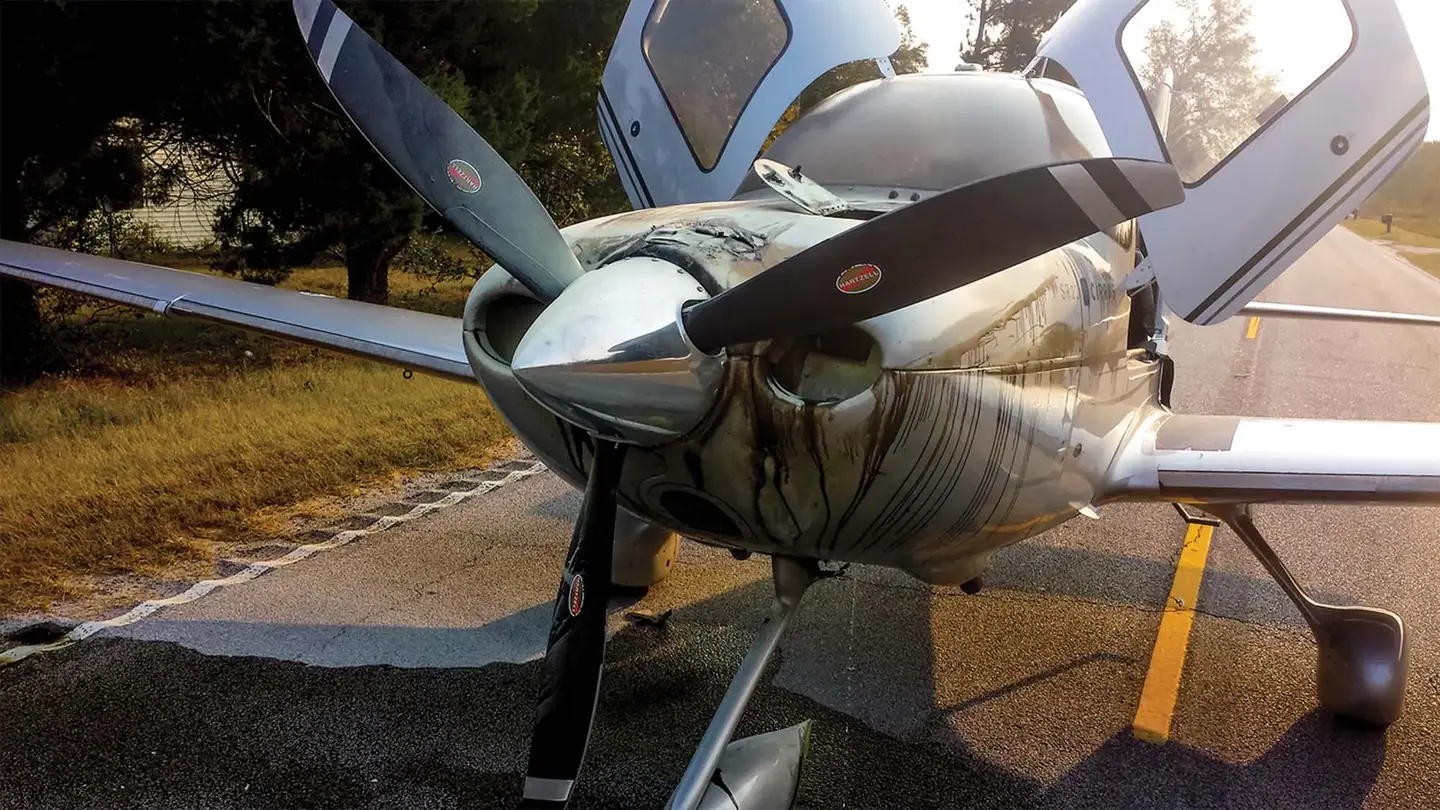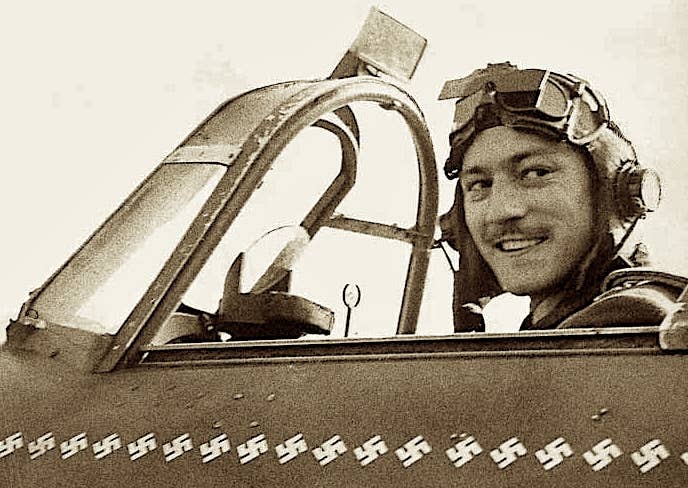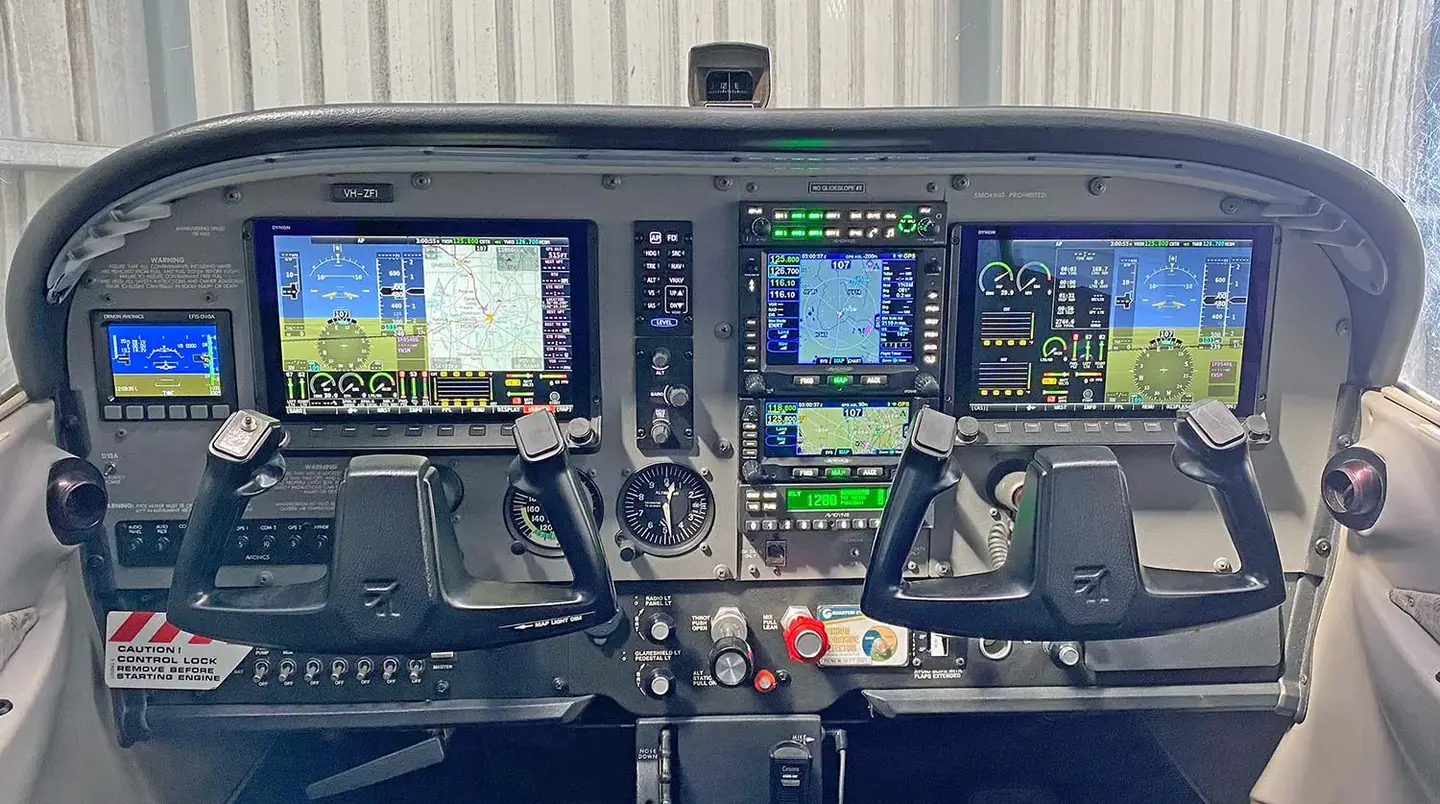FAA’s Privacy Decision: Martha King Speaks Out
INTERVIEW. Since AVweb came out strongly in opposition to the FAA’s controversial decision to stop making airman mailing addresses available to industry and the public (see Mike Busch’s editorial “Throwing Out the Baby with the Bathwater”), the silence from the alphabet groups and aviation press has been deafening. An industry leader who has had the courage to speak out on this issue is Martha King of King Schools. One of aviation’s most respected flight instructors and business leaders, Martha discussed her views on this complex subject with AVweb editor-in-chief Mike Busch in this exclusive AVweb interview. She explains not only why the FAA decision is bad for aviation safety and inconsistent with the FAA’s principal mission, but also discusses the extraordinary manner in which the FAA’s top lawyers appear to have rammed this ill-conceived reversal of long-standing FAA policy down the throats of other high-level FAA policymakers (many of whom disagree strongly with it), not to mention the aviation industry and the airmen who are most adversely affected.

|
 I'mhere talking to Martha King of King Schools.
I'mhere talking to Martha King of King Schools.
Martha, thank you for agreeing to talk to us about this important issue. Iwas present at the "Meet The Boss" session at Oshkosh this year when you raisedthe issue with Administrator Garvey about the FAA's decision to withhold airman addresses.How did you first become aware that the FAA had made this decision?
 Well we've been in pretty regular communication with the contractor who handles the actual availability of the FAA list — the one that Oklahoma City hires for the distribution on that — and he had been hearing rumors about this since about December. But no one was saying anything to him that was concrete. He just had friends at Oklahoma City that would say to him "Well, I hear this decision is coming down...you better be ready for it," and he'd say "Do you have anything in writing?" and they'd say "No but we have all these rumors floating around." So, we basically were operating on a "we hear these rumors" kind of basis from December until about the first of May.
Well we've been in pretty regular communication with the contractor who handles the actual availability of the FAA list — the one that Oklahoma City hires for the distribution on that — and he had been hearing rumors about this since about December. But no one was saying anything to him that was concrete. He just had friends at Oklahoma City that would say to him "Well, I hear this decision is coming down...you better be ready for it," and he'd say "Do you have anything in writing?" and they'd say "No but we have all these rumors floating around." So, we basically were operating on a "we hear these rumors" kind of basis from December until about the first of May.
Then, in early May, the General Aviation Manufacturers Association (GAMA) set up a meeting in Washington with the FAA and a number of industry groups to discuss the rumors that were floating around, and see exactly what was going on here — did the FAA have something planned? At that meeting, we found out that — without any discussions with industry, or any notice, or any interaction with even the alphabet groups — the FAA had decided that they were no longer allowed to release the airman mailing list, and that they were going to end it as of the end of May.
Who in the FAA was speaking for the Agency's decision in that meeting?
The people from the FAA that were there primarily were from the Office of the General Counsel. I believe that the strongest advocate for this new position of the FAA was James Whitlow, who I believe is Number Two in the Chief Counsel's office...
Deputy Chief Counsel?
Yes. He was certainly the one who was doing most of the talking for the FAA in regard to it, although there were a number of other people from the FAA in the meeting — Nicholas Garaufis and Peggy Gilligan — and there were also, interestingly enough, several people from the Department Of Transportation...from their legal staff.
Martha, it was obvious from listening to you at the "Meet The Boss"session at Oshkosh this year that you feel quite passionately about this issue. Tell mewhy you think that releasing the list of pilot addresses to industry is important to theFAA mission.
The FAA has a mission that we as a company and individually believe in very strongly, and that is improving aviation safety. They do a lot, but there is a lot more to be done. The FAA has recognized (not only informally, but officially) that they don't have the resources — either manpower or money — to do everything that they would like to do to enhance aviation safety, and certainly that is available to be done.
Frankly, they have limited resources. It's a fact of government, particularly these days, that the government has limited resources. So they have to pick and choose those things they can do. They're working very had on some things in aviation safety, but there's much more that can be accomplished only by a partnership between the FAA and industry. As I said, they have recognized this officially, and they are calling strongly on industry to participate in this partnership to increase and enhance aviation safety.
It is a partnership and a cooperation that — as a company and personally — John and I are very interested in participating in. It's very painful when someone you know that is a pilot goes out and hurts themselves or hurts their family or hurts their friends because there was something that they were either never taught in the first place, or they learned it but forgot it, or there's new information that has been discovered — new techniques, new procedures — that they could have known and would have prevented the problem, but for whatever reason they weren't exposed to it, didn't know about it, or perhaps were and forgot it.
We feel kind of a personal relationship with the people that we have worked with as students, whether in person or on videotape, and it's really painful to see these people go out and hurt themselves. So we are very, very enthusiastic about participating to enhance aviation safety. But it is something that the FAA has just made more difficult for us to do by withholding the list of airmen's addresses, because it has made it much, much more difficult for us to reach people with safety messages and training messages.
Yes, certainly there is some commercial activity going on at the same time, but this is what a government-industry partnership is all about. Industry, in the process of providing for its commercial needs, can also do a great deal of assistance to the FAA in their primary mission of enhancing aviation safety.
For instance, our company King Schools, in the last ten years, has mailed out 700,000 free aviation training videos. They have focused on the problems that student pilots are having learning to handle crosswinds. It's a small teaching segment, but I think very valuable. The FAA has just made it so that we are no longer going to be able to reach these people, communicate with them, give them this safety information, and make them aware of may of the other resources that are available to them as far as improving their training and improving their knowledge.
I know that many pilots are concerned about their mailing addresses being madeavailable by the FAA to aviation companies. Why should pilots care about having the listmade available to industry?
As I said, one of the things that companies in the aviation industry do is, in the process of contacting a pilot with information about the company and their own products, they also provide a considerable amount of information about new techniques and new information that has been gained from research. Things are really happening right now in regard to weather and available products to really understand what's happening and to be able to know what's happening and have that information in the cockpit.
There are a number of companies whose products are focused on a very small segment of the pilot population — very important...extremely important...to that particular segment —but because the segment they're trying to reach is a relatively small segment of the pilot population, they're not able to do the expensive magazine advertising and reach people in other ways.
There are an enormous number of sources of information and improvement and safety advice that have been available in the past that will not be available to pilots in the future because of the withholding of the mailing list. So basically what's happening is pilots are being deprived of a lot of the information that they have relied on to keep themselves up-to-date, keep themselves advised of new trends, new techniques, new products, new regulations.
The decision to withhold airman addresses affects not only commercial firms likeKing Schools, but also non-profit organizations with a safety mission, correct?
Absolutely. This applies for everybody. The FAA themselves can still do mailings, but even the non-profit companies that have strictly a safety message...it's not available to them either.
On which segment of the pilot population will the FAA's decision to withhold airmanaddresses have the most impact?
Mike, I think it's going to have the most impact on student pilots and new pilots. Pilots that have been in the industry for awhile have a fairly good feel for where to go for information. They're receiving some of the publications I've been talking about and other sources of information.
But you know, a student pilot who is just getting started really has no idea where to go for all of this. They get a great deal of helpful information in the mail directing them to various places for products, services, publications, magazines...and they're going to miss all this because their names will not be available to the industry...whether it's for product information or safety mailings or anything of that sort.
At the meeting that you attended in Washington, the FAA indicated that their handswere pretty well tied on this issue, and that it was simply a cut-and-dried legal issue.Do you agree with that?
No I don't. I feel that it's a policy issue, not just a legal issue. Other agencies in the government feel — very strongly — exactly the opposite of what the FAA does.
For instance, the Federal Communications Commission — an agency that we also work with — feels very strongly that addresses of their amateur radio operators (their licensees) needs to be available to the public — it's in the public interest that it be so — and they take strong steps to make it available. As a matter of fact, they feel that they are obligated in the interests of public safety to make that list available.
So if I understand correctly, you're saying that even though the FAA's position isthat under the law they have no choice but to withhold these addresses, another agency ofthe Federal Government (the Federal Communications Commission) has taken the exactopposite position.
That's exactly right, and that's why we feel that it's more of a policy issue than a legal issue.
What address information does the FAA require airmen to provide, and what do they dowith that information?
You know, that's an interesting question, Mike.
It is very important that the FAA have available a current mailing address on all of the licensees so they can reach them with safety information and notices and whatever information they feel they need to send out to pilots on an official basis from the FAA. So for years and years and years, what they wanted was a "permanent mailing address." That could be a post office box...it could be anything as long as it was a permanent mailing address for you where they could count on you getting any official notices or safety information that they needed to send out.
An additional requirement that has come along relatively recently due to the "war on drugs" is the requirement for the FAA to have a physical location where a pilot can be located if the Drug Enforcement Administration or other people involved in the "war on drugs" feel the need to physically contact a particular pilot. This, of course, has set up a conflict in the FAA's recordkeeping in that all the FAA needs is a mailing address to send notices to, but now other parts of the government are having the FAA require a physical location of the person.
One of the ways to solve that conflict is to simply carry two different addresses in the database: one a mailing address that would be available to industry and of course used by the FAA whenever they did mailings, and a separate address available only to law enforcement that would be used if there were issues regarding needing to physically locate a particular pilot. The FAA is not keeping those two separate addresses at this time, and this presents some complications for some people as far as the addresses going out to the industry.
And so rather than change their system to maintain these two separate addresses —one which would be a mailing address available to anybody, and the other which would be aphysical address available only to law enforcement authorities — the FAA's position is tosimply withhold everything?
This is correct. They have decided that the easiest way out is to simply not release the mailing addresses (which obviously include some physical locations) to anyone.
Now, one of the problems with that is that the fact that the FAA is not releasing new names and not releasing updates does not make the list just vanish. Part of what you end up with, because the FAA is not releasing any updates, is the inability at this point for an individual to change their address from, say, home to their work address or a post office box or make any other changes of that sort. Because essentially, the FAA has not made the database vanish, they have simply frozen it wherever it is now.
The FAA has had available for many years (they simply haven't publicized it) the ability for an individual pilot to have their address marked as "do not release" on the mailing list. So pilots have had the ability for years to not have their names released if they chose to do so. But the FAA has not made it easy, and they have not publicized it. And this is part of what has created the problem.
So pilots had the ability to specify that they did not want to receive mailings fromindustry. It's just that very few pilots were aware that they had that option.
And I think also that very few pilots would really choose to opt out completely from that, because they would no longer get any mailings for safety seminars, they would not get any mailings on new product information, for airplanes they might fly...there's a lot of things they would miss out on if they opted out of the mailings.
But certainly high-profile people or people with security concerns might not wanttheir home address to be made public.
Yes Mike, that's true, and you know it's interesting if you look at it, I think that many of those high-profile people have already listed their business addresses anyway as their mailing address.
The FAA seems to have made this decision in a very unusual way. Does it bother youthat they made this decision without consulting either industry or the airmen who areaffected by the decision?
It does because this decision significantly impacts the FAA's ability to do their primary mission of aviation safety. So on the one hand, you have part of the FAA interacting with industry and saying "we want to work together, your input and your assistance is very important to reduce aviation accidents by a significant amount." And on the other hand, you have the lawyers in the Chief Counsel's office saying that they're going to cut off the means by which industry communicates with the pilots to convey these messages...and doing it without any notice to the aviation community, the industry companies, or to the individuals in it.
As I said, there was no contact with the industry and discussions of what alternatives might be able to be worked out. I can understand that the FAA might have some computer and programming issues involved in this, but there was no contact with industry to attempt to find ways around it. Are there facilities in industry that would help them do this? Are there ways to help expedite it? And there was no real notice given at all to the aviation community.
There's one other thing that I should mention to you, Mike, that bothers me about how this was done...the cutting off of the mailing list. We talked in the "Meet the Administrator" session at Sun 'n Fun earlier this year, which Administrator Garvey was not at because of previous conflicts. One of the things that really surprised and disturbed us greatly was that while the attorneys in the FAA from headquarters were quite aware of the mailing list issue, none of the other people in the policymaking level in the FAA seemed to have any awareness that this was underway, and they were quite surprised and quite upset at finding it out in a public forum (the meeting at Sun 'n Fun). So it would appear from looking at that that there was not a great deal of discussion within the Agency in regard to this, either. Not only no discussion with industry, but very little discussion within the Agency.
So if I understand what you're saying, would you characterize it that lawyers withinthe FAA took the position that that it was purely a legal issue for them to decide, andnot an issue that either the policymaking people in the FAA, nor the airmen, nor theindustry should have any input on?
You know, Mike, you never know exactly what's going on unless you're there, but it certainly had that appearance.
I understand, Martha, that this issue has attracted enough attention within Congressthat there is now language in the House version of the FAA reauthorization bill that wouldcompel the FAA to start releasing airman addresses once again after a 60-day period duringwhich all airmen would be notified of their ability to opt out. I assume from what you'vesaid that you would support such legislation?
Mike, I would support such legislation. You know, when you are a licensee — you hold a pilot's license from the FAA, or maybe you old an amateur radio license from the Federal Communications Commission — you have acquired quite a few privileges by doing that. You also have certain responsibilities. You have responsibilities to other people in your same industry (whether it be amateur radio or aviation), and you also have responsibilities to the general public. This is why the Federal Communications Commission feels that it's so important that licensees be available to the general public, because there is a public safety interest here.
I feel the same about aviation licensees: that we all hold a responsibility to others in aviation and also to the general public, and that the release of the list to industry helps us all fulfill that obligation and that responsibility through better training, better awareness, and also through the general public being able to assure themselves that, for instance, the person who has just invited them to go up in an airplane really does have the pilots license that they claim to have, and really is licensed to do what they are intending to do in an airplane.
Martha, thank you very much for taking the time to do this interview. It's beenfascinating talking to you. We at AVweb are planning to stay right on top of this issueuntil it gets resolved.
Well, Mike, I appreciate it very much. As you can see, I'm fairly passionate about it, and that's because I feel like the people in the aviation community are friends and I want them to do well and not to hurt themselves. To me, this is really an aviation safety issue...and it's important to me because of that.
Thank you.
Thank you very much for the opportunity to talk about it.
EDITOR'S NOTE: Our best hope to get the FAA to reverse itsill-conceived decision is if Congress passes the FAA reauthorization bill with languagethat would compel the Agency to start releasing airman addresses once again after a 60-dayperiod during which all airmen would be notified of their ability to opt out. Thislanguage is presently in the version of the bill passed by the House (H.R. 4057), but notin the Senate version of the bill (S.2279). Whether or not the provision becomes lawdepends on the outcome of the upcoming House/Senate conference. We suggest you contact thefollowing key Senate conferees without delay and urge them to adopt the House language(H.R. 4057, Sec. 808):
Sen. John McCain (Chairman, Senate Commerce Committee)
senator_mccain@mccain.senate.govSen. Ernest Hollings (Ranking, Senate Commerce)
http://www.senate.gov/~hollings/webform.htmlSen. Slade Gorton (Chairman, Senate Aviation Subcommittee)
http://www.senate.gov/~gorton/webform.htmlSen. Wendell Ford (Ranking, Aviation Subcommittee)
wendell_ford@ford.senate.gov







